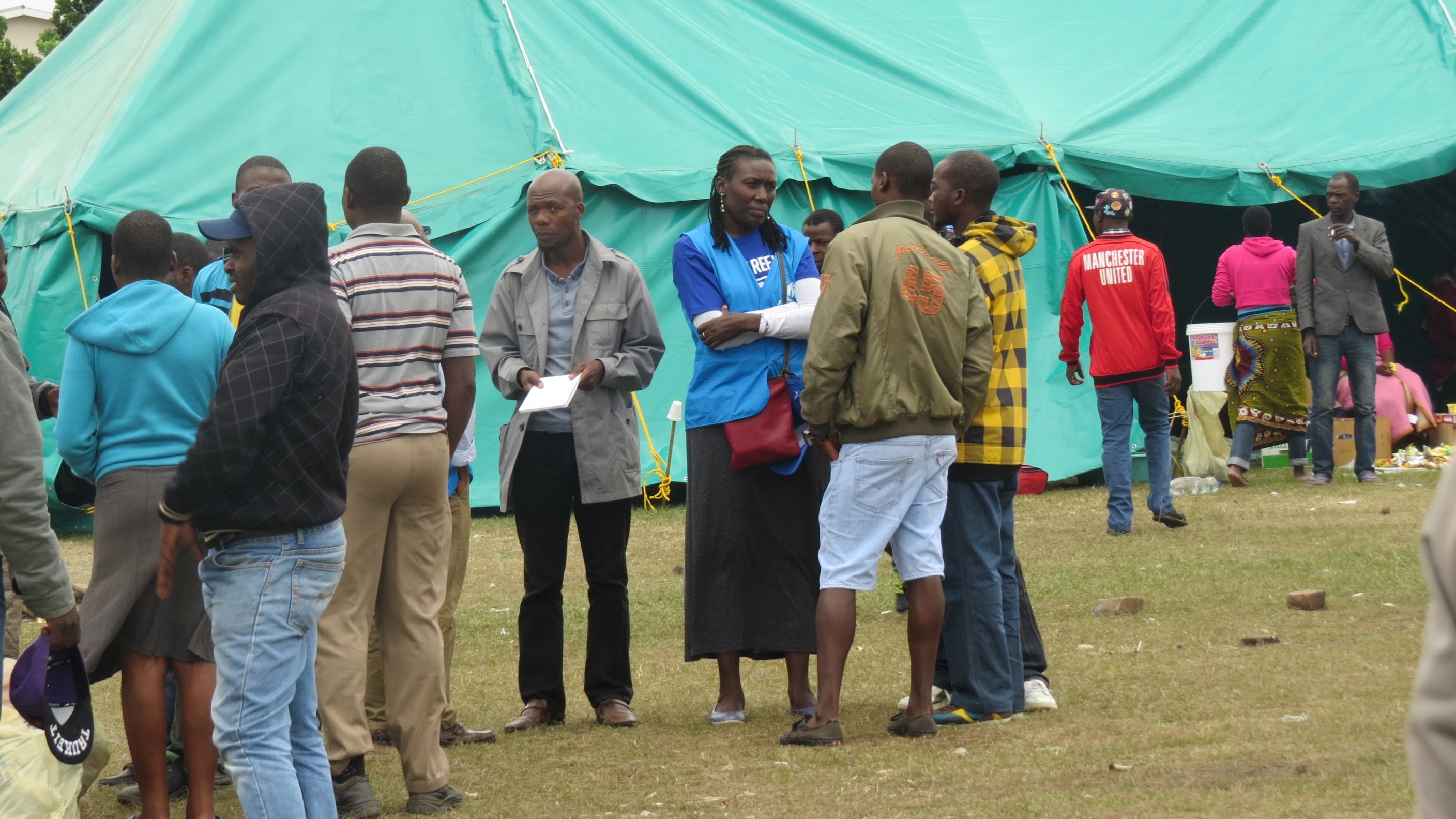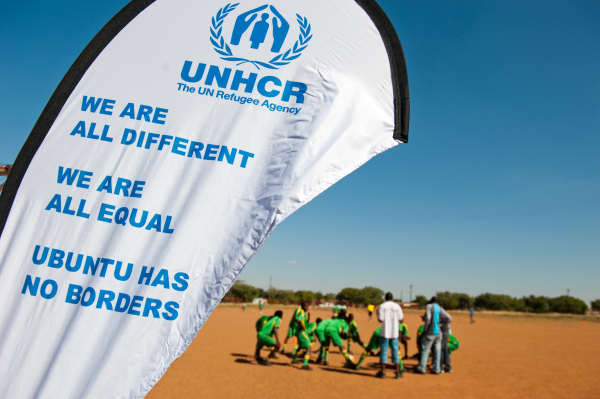Talk of new xenophobic violence in South Africa has refugees on edge
Talk of new xenophobic violence in South Africa has refugees on edge

JOHANNESBURG, South Africa, July 6 (UNHCR) - Dolebo Debisto, an Ethiopian refugee restaurateur in Duduza Township near Johannesburg welcomes me in true African style. Shoulders hunched respectfully, face radiant as if welcoming a long lost relative, my outstretched hand is engulfed in a handshake filled with warmth.
His resolve to continue business as usual belies the fear welling within. Rumors there will be an outbreak of xenophobic violence when the World Cup football tournament ends later this week have resurfaced and Debisto has good reason to be anxious. He was one of 150,000 people to be targeted during a wave of attacks on foreigners in 2008 that left over 60 people dead.
Debisto found refuge in one of the government-run temporary safety sites, created with the support of UNHCR. The safety sites, which were located primarily in South Africa's major cities, were gradually shut down as the government, UN agencies, and human rights organizations worked to reintegrate refugees and other foreigners into sympathetic communities.
"After the safety sites closed in 2009, Debisto became something of a fixture in our office," recalls Josephine Namata of Jesuit Refugee Services (JRS), a partner agency of UNHCR. "He was desperate and always close to tears. Seeing him like that broke my heart."
Debisto had only recently married when the xenophobic attacks began in May 2008, forcing him to abandon his former life for the protection of a safety site. By the time the sites were shut down some 10 months later his young wife had given birth to twin daughters and the family had no where to go.
"I had no place of my own, no income and nothing to feed the babies," says Debisto his face clouding over with the memory. Separated from his extended family and the support they would have normally provided, Debisto, his wife and their children sheltered in a room provided by a fellow Ethiopian.
Through a UNHCR-funded income generation scheme run by Jesuit Refugee Services, Debisto was able to rent a small grocery store in the township. Using the profits from the store, he opened a Ethiopian restaurant adjacent to his home. The restaurant attracts a steady stream of customers drawn from the community of 200 Ethiopian refugees living nearby. For them, a meal of vegetables and meat placed artfully on the large surface of Injira, the staple flat bread of Ethiopia, offers a taste of home.
But Debiso is aware that the restaurant's popularity also makes it a potential target for those determined to rid the township of foreigners.
"We're know how real the threat it is," he says. Sympathetic South Africans are also hearing the rumours. Debiso recounts the advice given by a South African woman he describes as a "friend of refugees. She approached us and begged us to be out of the township when world cup is due to end - for our safety."
Duduza Township is infamous for being the first community in South Africa where a burning tire was placed over an alleged apartheid informer at the height of the country's fight for liberation.
I can recall as a young child watching with revulsion and horror when the incident was shown on national television. Decades later I would watch a similar scene play out once again on TV at the height of the 2008 xenophobic attacks.
With the World Cup in its final days, many foreigner nationals, particularly those from Mozambique and Zimbabwe are leaving the country. Newspaper reports tell of people from neighbouring countries sending their belongings home. For refugees and asylum seekers returning home is not possible.
South Africa's Minister of Police, Nathi Mthethwa, has gone on record warning would-be attackers that, "violence for any reason against foreign nationals resident in the country will not be tolerated."
"Responsibility for the protection of refugees and the maintenance of law and order rests with the government,' says Sergio Calle-Norena, UNHCR's Deputy Regional Representative. "But we are prepared to assist should the government request our support."
Debiso, who recently removed a scribbled but untraceable note from his front door ordering foreigners to leave the township, "or else…", says he and other refugees remain hopeful that rumours of violence will turn out to be just that.
By Pumla Rulashe
In Johannesburg, South Africa








